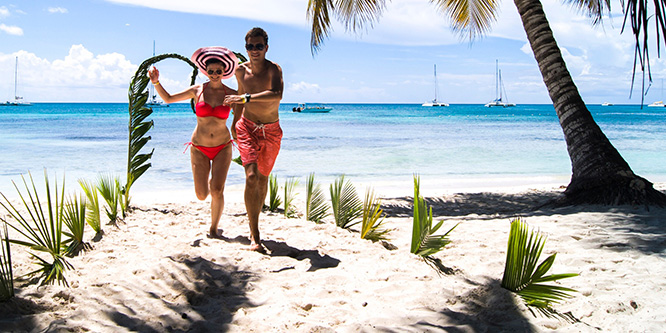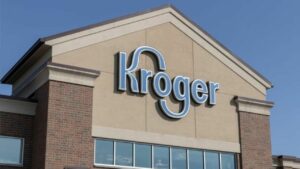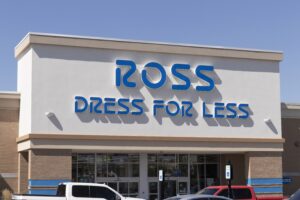
Photo: @vladyslav.levin via Twenty20
June 15, 2022
Are consumers going to take a vacation from buying things?
The cost of goods is increasing, and while inflation is causing customers to trade down and look for deals when they are at home, they are still spending money to go on vacation — so much so that it seems to be keeping people employed in the hospitality sector.
The leisure and hospitality industry added 84,000 jobs in May, while the retail industry lost 60,700, according to Business Insider. Travel, vacations and spending on services remain steady as spending on goods flattens, making it appear as though Americans would rather indulge in vacation experiences than on products in stores. While leisure and hospitality led all industries in job growth in May, the vertical still fell behind the February 2020 payroll by 1.3 million.
The current trend, however, is not unique to today’s inflationary economy. As early as 2014, surveys were finding that Millennials, in particular, were more interested in spending money on experiences than purchasing new possessions. One market research study by Eventbrite from 2014 found that spending on experiences trumped buying things for 78 percent of Millennials. That generation, which was at the time between 18 and 34, reported participating in live events like concerts and festivals at a higher rate than older generations.
By the late 2010s, retailers across segments were experimenting with “experiential” concepts that gave customers something to do besides just buy. Instagram-friendly retail-tainment pop-ups like The Museum of Ice Cream drew nationwide attention, and retailers like Target partnered with them to bring their brands to the shelves.
Some retailers even started making moves directly into hospitality to capitalize on Millennial experience seekers.
West Elm, for example, announced that it was opening a number of hotels in 2018 that would focus on guest experiences and also feature the chain’s products, though an article from Atlas Hospitality Group published in mid-2020 details legal issues surrounding development that stalled the retailer’s plans.
Much of the world of experiential ground to a halt at the beginning of the pandemic, due to forced business shutdowns.
Discussion Questions
DISCUSSION QUESTIONS: Do you see U.S. customers spending a greater percentage of their disposable income on vacations and other experiences rather than on goods? How can retailers make themselves more attractive to shoppers more focused on vacation/leisure experiences?
Poll
BrainTrust
Melissa Minkow
Director, Retail Strategy, CI&T
Jamie Tenser
Retail Tech Marketing Strategist | B2B Expert Storytelling™ Guru | President, VSN Media LLC
Paula Rosenblum
Co-founder, RSR Research
Recent Discussions







Consumers are certainly spending a greater proportion of their income on vacations than they did during the pandemic, largely thanks to the sector opening up. I also think people have missed travel and seeing other places and will prioritize it going forward. That said, there are two very clear trends. First, household budgets for many are more squeezed so vacations may come at the expense of spending on other things – especially big ticket things like home, where sales volumes are already down over last year. Second, not all households will be able to afford to travel as much as they would like because the cost of necessities is up, and because the cost of travel itself is very inflationary across everything from gasoline to airfares.
There’s a burnout aspect of the pandemic that makes experiences that much more enjoyable. The reality is that everything is expensive right now, including flights. However the ROI on shared experiences and mood-boosting activities is often much higher than that of material purchases when it comes to mental health.
I could not agree more, re: “the ROI on shared experiences and mood-boosting activities is often much higher than that of material purchases when it comes to mental health.”
In a word, yes. I was just at a beach on the Florida Gulf Coast the past few days and it was teeming with families, young and older adults. Every restaurant we went to had an hour plus wait. Vehicle traffic was heavy everywhere. It’s not a surprise. Consumers are tired of being held back, cooped up in their homes and they’re willing – even with high inflation and high gas prices – to trade out retail goods for fun, experiential vacations. In fact, this could be the summer where parks, beaches and resorts experience all-time highs for occupancy and visitation. I’ll take a cold beverage with that beach chair!
As is indicated in today’s discussion, this is not a new phenomenon. It isn’t just related to vacations. The Millennial mantra seems to be “I’d rather do things than buy things.” That isn’t in any way related to saving money. They continue to spend.
This trend is a challenge for retailers. Retailers are in the business of selling things to people. In most cases, selling people things they don’t really need. There is really a question on how they can make money related to the vacation/experience trend. Once they start in that direction, without skills and resources, they compete with those whose business it is. This is a real opportunity for those in that business to sell their services to the retailers.
Case in point. For his 14th birthday, my now 14-year-old grandson didn’t want a physical present, he wanted to go to an antique car show. To which we will take him.
After almost two years of limited life experiences and disposable income being spent on things at home, it comes as a surprise to no one that people are spending on travel and hospitality again in a big way. The real test will come when (if) a recession kicks in later this summer.
There is a lot of pent up demand for vacations and travel and hotels and transportation service companies (airline and car rentals) are benefiting. While a greater share of consumers’ budgets are focused on experiences, we still have a need for products. Retailers will need to raise the bar on their marketing campaigns to capture consumers’ attention and offer compelling, interactive experiences in stores to attract and retain customers.
It is hardly surprising after three years of being unable to travel and meet other people at concerts, etc., that consumers are really flooding back into vacations, concerts and experiential activities. We must not translate that into the end of retail as we seem to try and predict the doom of retail too often. Millennials do not have the same need to own “stuff” as previous generation but that is largely because when they were growing up they had everything they wanted. They do still spend large amounts online and that will continue. Retail has always been very good at adapting to new trends and levels of activity, moving to more experiential retailing was happening prior to 2019 and it will form part of the future. Just give it time to get past the last few years.
I think we’re making too many far reaching decisions from post-pandemic rebound. That’s how Target ended up with too much inventory — and to presume that we’re going back to “experiences” when Millennials are now seriously into their growing families and people like me, who never, ever did it in their lives before, contemplate a driving trip based on the cost of gas, is not a wise move.
We are living in and have just come out of a singularity. Patience. We have another year before this new world stabilizes.
This is brilliant, and you are spot on with this, Paula!
The economy has never experienced inflation after a pandemic. Normally, I would look at historical economic data to understand what may happen in the near future. But that won’t work this time. People appreciate life more than pre-pandemic, so they may be looking for ways to afford the vacation or experience they long for. The result will be tightening up the budget on typical expenses. That could come from bargain hunting, eating at home more often, spending less on what they eat at home, and more.
While consumers spent a lot on goods during the pandemic, now they are clearly making up for the lack of experiences, and to a degree at the expense of “things.” Much like before the pandemic.
At the same time, it’s problematic to say that all retailers are suffering or going to do so. While many broad-line and laggard retailers aren’t doing as well, there are plenty that are and that goes back to which retailers are investing in distinguishing their assortments, enhancing their customer experience and modernizing their operations.
The leaders will do just fine and the laggards will continue their irrelevance and ultimate demise.
With the rising cost of living, gas prices, and the overall inflationary and potentially recessionary circumstances, consumers are being far more conscious of and purpose-driven with their spending. An element of pandemic fatigue set in late last year and early this year, leading to a rise in shopping for discretionary items. However the narrative has changed and, with the summer upon us, consumers are spending more wisely and seeking experiences rather than more products.
Unfortunately with all the other rising costs, and gas prices, travel costs are on the rise as well. Airline, hotel, and other travel expenses have increased with the inflationary rate. In addition, the surging demand for travel has led to rising prices for plane tickets, hotels, and home rentals. The relentless need to get away from it all will make it challenging to find travel deals in all the popular destinations.
Let’s acknowledge that inflation is influencing consumers in lower income brackets very differently compared with those of us who actually have the luxury of choosing between experiences and goods.
The shift to experience was well underway pre-pandemic for those with means and we should not be too surprised to observe that it continues — despite skyrocketing fuel costs and airline ticket prices. Seems to be a case of pent-up demand and FOMO.
Retailers can respond in at least some “aftermarket” categories like travel wear, luggage, baby strollers, sunglasses, photography gear, etc. Food and mass retailers might further tweak merchandise assortments (sunscreen endcaps?) at stores in resort locations. Omnichannel retailers and pharmacies could emphasize ultra-convenient product deliveries to hotel and resort guests.
These tactics will win relatively few discretionary dollars compared with the costs of a vacation. Retailers will never persuade shoppers to un-budget precious family trips and outings with clever merchandising, nor should they try.
During the pandemic consumers stayed home and bought products. Now the world has opened up and consumers want to get out of the house — go to dinner or the gym, take a vacation, walk on the beach, etc. I see the vacation buying continuing, only slowed by inflation’s impact on the choice and time allotted for the vacation. For example, going to the beach or lake for the weekend versus an extended trip to Europe.
In the meantime, retailers need to focus on offering value added services, e.g., prepared meals to go, cooking classes, veterinarian availability in the parking lot, etc. Think in terms of services that can help consumers, instead of simply selling food and CPG products.
The prevailing inflation may have affected the buying behavior of consumers to some extent, but that does not imply they will prefer going on a vacation instead of buying things. A person will have to shop even when planning for a holiday. So I think the pattern here is inclined more towards seasonality. People plan vacations and travel during their summer break and there’s nothing surprising about this. Easing COVID-19 norms have further raised the demands for travel and hospitality. Specially, the newer generations and millennials are more likely to go for experiences instead of buying possessions and pure play consumerism.
No, consumers are not taking a vacation from buying things. This is why we are seeing inflation at record levels. Money is still very available (cheap) and the average consumer has pent-up demand to travel and to purchase things. Interest rates are still too low, and this is why we have record inflation and excessive demand for homes, cars, etc. Until this changes, and the employment burden starts to balance better (it is still too cheap to hire workers), we will have record employment, minimal unemployment, and the average worker salary out-of-sync with our productivity. Going on a vacation does not stop the spending by consumers, since it usually only delays it by a few weeks, if at all. In our more, on-line, economy, location doesn’t matter. This means that consumption can still occur anywhere the consumer is.